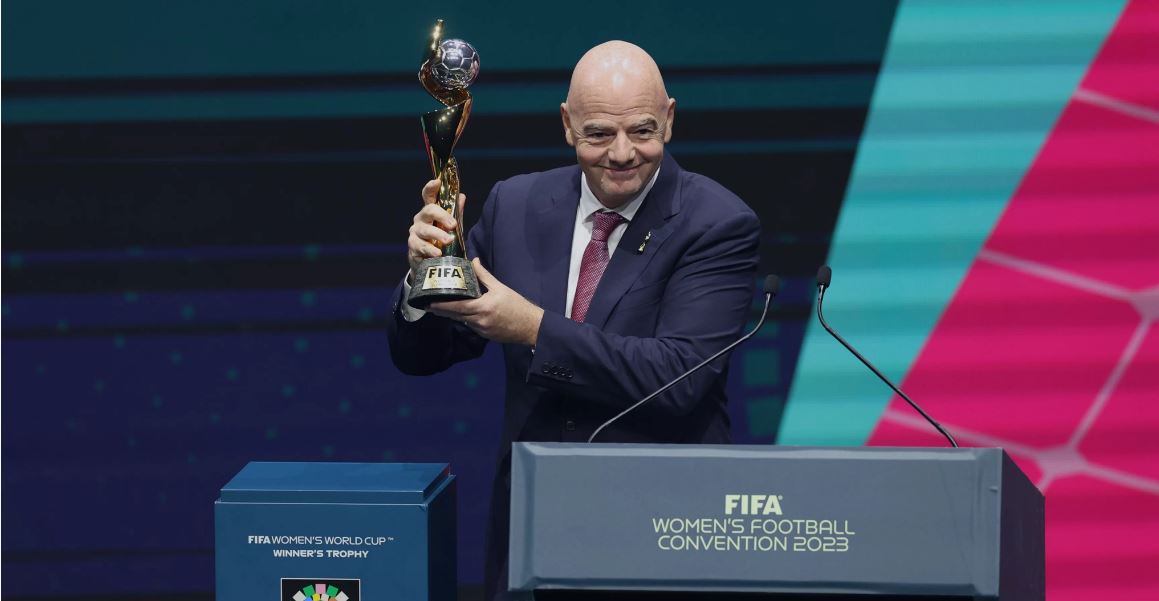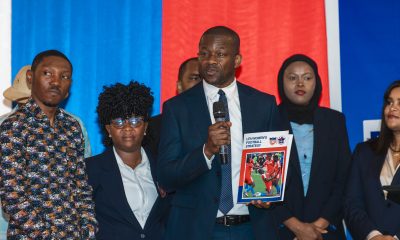Gianni Infantino has said that the FIFA Women’s World Cup 2023™ has transformed the face of women’s football and appealed to governments, member associations, broadcasters, and the media to help keep the momentum going toward equality once the tournament ends on Sunday. Speaking at the opening of the Second FIFA Women’s Football Convention in Sydney, the FIFA President thanked Australia and Aotearoa New Zealand for co-hosting “simply the best and greatest, and biggest FIFA Women’s World Cup ever”. “This FIFA Women’s World Cup has been truly transformational, not only in Australia and New Zealand but all over the world,” he said. “In the host countries, we had almost two million spectators in the stadiums — full houses everywhere — and two billion watching all over the world — and not just watching their own country but watching the World Cup, because it’s an event [where] I don’t just watch my team. It’s a great sport, it’s entertaining and people love it.” “We have to thank and congratulate Australia and New Zealand because without them this would not have been as magical.”
Australia’s Minister for Sport Anika Wells echoed the FIFA President’s comment. “While this is almost the end for this [FIFA] Women’s World Cup, it is only the start of a new era for sport in Australia. The sleeping giant has awoken,” she said. “In Australia, this FIFA Women’s World Cup has not just changed women’s football; it has changed women’s sport. Australia is now a football country. “I want to thank FIFA for what you have done to accelerate the pursuit of gender equality in our country.” The FIFA President said there was still much to do and urged FIFA’s partners to contribute. “We need everyone. We need the UN agencies, who have been very helpful to us in this World Cup, participating with us. We need the governments, we need the institutions, to create dedicated spaces for women, and for women’s sport and women’s football in particular, of course. We need the partners, the sponsors to pay a fair price. We need the media,” Mr Infantino said. He asked broadcasters “to pay a fair price for women’s football, not just for the (FIFA Women’s) World Cup, but for women’s football in general, in all the countries, all the leagues, in all the competitions”.
The FIFA President urged FIFA’s member associations to ensure that they organise women’s leagues, pointing out that some of the players who had starred at the tournament would not have any competitive football to go home to. “(Female players) cannot all go to play in a few clubs in Europe or the USA. We need in the next four years for them to be able to play at professional level at home and this is the biggest challenge we have to take on board,” he said. Mr Infantino added that the tournament’s success had supported the decision to enlarge the tournament from 24 to 32 teams. “FIFA was right,” he said. “By increasing the number of teams, we had eight debutants, we had many countries who suddenly realised they had a chance to participate. Now, everyone has a chance to shine on the global stage.”
The tournament had showed that standards were rising while the tournament had generated USD 570 million, allowing it to break even, he said. In concluding, the FIFA President also appealed to the assembled audience to act at all levels: “We have to start treating women and men in the same way. I say to all the women that you have the power to change. With FIFA, you will find open doors, just push the doors, they are open. And do it at national level in every country, at continental level in every confederation, just keep pushing, keep the momentum going, keep dreaming and let’s really go for a full equality.”
















